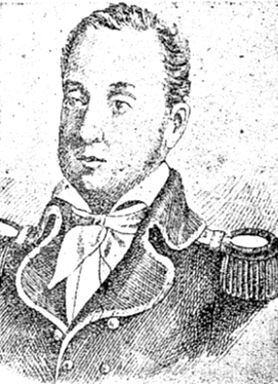Vincent Ogé - A Loyalist
 Portrait of Vincent Ogé Ogé, a mixed and wealthy slave-owning free man, sought the status and acceptance enjoyed by white plantation owners. Motivated by news of the French Revolution, he proposed a race-neutral society in St. Domingue that would gradually phase out the slave system, but was promptly rejected due to fears that such color-blindness would disrupt the slave trade and destroy the thriving sugar cane industry.
Portrait of Vincent Ogé Ogé, a mixed and wealthy slave-owning free man, sought the status and acceptance enjoyed by white plantation owners. Motivated by news of the French Revolution, he proposed a race-neutral society in St. Domingue that would gradually phase out the slave system, but was promptly rejected due to fears that such color-blindness would disrupt the slave trade and destroy the thriving sugar cane industry.
In response, Ogé allied himself with Les Amis des Noirs, an anti-slavery group that proposed voting rights for free blacks. When his efforts were again struck down, he returned to Saint Domingue to rally free people of color and eventually lead their organized military attack against the French. Not long after, Ogé was captured, tried, sentenced, tortured, and executed in February 1791. However, his efforts moved so many that he quickly became a martyr in Haiti for the revolutionary cause.
His revolt had brought French Revolutionary politics to the general public of Saint Domingue, and his execution had ignited a civil war where each group rallied for their own interests. It was those revolting back in 1791 who first invented decolonization, thus setting Haiti on track to becoming the world’s first declared postcolonial state in 1804.
